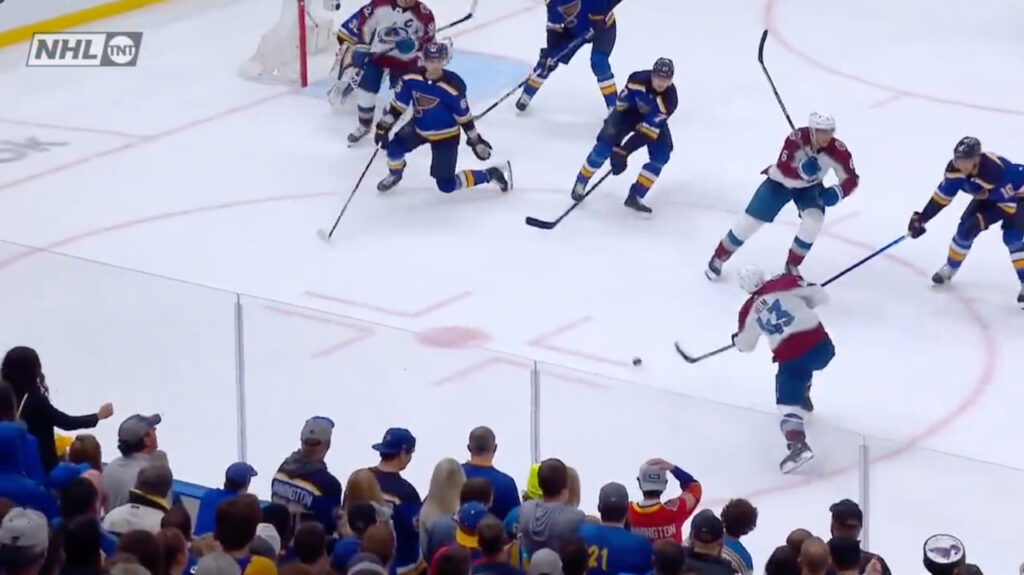

No matter how talented you are, there is a high likelihood that – at some point during your career – you will be the 4th liner. The 6-7th defenceman. The back-up goalie. You’ve been a perennial star on your club team, the player that everyone relies on to contribute offensively or defensively…. but now… no.
As you move up the levels as a hockey player, roster spots become very scarce. Just think – thousands of kids play minor hockey in Eastern Canada every year, but only a handful of those players will ever play Junior ‘A’ or above. You might be the top line Centre on your AA team, but when you go and play in a World tournament, it’s highly likely that there are better candidates to play the top line Centre role than you. Maybe there are hundreds of top line Centre’s to choose from – most years in a hockey talent-rich country like Canada, this can be the case. Just look at Team Canada at the Olympics; the 4th line Centre is likely the top line Centre on his NHL team, was the top Centre on his Junior team, and maybe a phenom or ‘the next one’ with his minor hockey team (same goes for Team Canada Female).
Being a 4th liner can be tough. I was a 4th liner in 2002-03 with the Pembroke Lumber Kings of the CCHL. George Dupont – our Head Coach at the time – didn’t play me for 13 straight periods! Yes – 3 more than 10, one less than 14. 13 straight periods of riding the pine (I doubt this is even legal in hockey any more, given all the changes that have been made in the past decade to improve players mental health). I went from scoring 40 goals in my first year of U18 AAA to getting 6 shifts a night (on a good night)! The point I’m trying to make is – the 4th line, the 7th defenceman, the back-up goalie happens to just about everyone at some point in their career (I also won a National Men’s Ball Hockey Championship in 2010 as a 4th line/7th defenceman role).
Here are some tips and tricks to becoming a better 4th line/role player. It’s not an easy role, it’s not a glamerous role, and it certainly isn’t for everyone. But if you want to make it to the next level, you might need some of these tips and tricks to keep you up with the big club. Because an NHL paycheque/lifestyle is a lot better than an AHL paycheque/lifestyle (according to sources). Read on.
Tip #1 – Know Your Role. Buy in. This is very, very difficult for a player who goes from being a high octane offensive guy/girl to being a player who the coach wants to play north-south, chip-chase-change hockey. But I’m telling you, no one – not the players on the team, the coaches, the management, or the fans – care if you score a goal or get a 2nd apple. Don’t get scored on, play hard between the whistles, move your feet, stay out of the penalty box, track pucks, and don’t stay on too long. It’s about the TEAM, and your role on the team is not to score, it is to play a role (if the 3rd and 4th lines score, it’s a bonus). You still win a Stanley Cup ring, and no one ever asks how many shifts you played if you win a championship. Surprisingly – in a world where everyone makes it about you – a hockey team/organization is bigger than you. Know your role. Buy in. Be the best at your role on planet earth, even if it’s not a glamorous one.
Tip #2 – Be a tremendous team mate. No one likes a role player who sulks about his or her ice time, acts like the world is ending when he/she doesn’t hear their name called for next-line-up, pouts regardless of the score, and trips over his or her bottom lip even when they get out there. You have to be the guy/girl who prides themselves on positivity. High fives, positive vibes, positive chatter on the bench/locker room, and when your number is called, find ways to contribute. It doesn’t have to be goals and assists – it could be a big shot block, creating a turnover that leads to a shot on goal, drawing a penalty, throwing a big hit that gets ‘the boys’ going… maybe even a little snow shower of the goalie if you’re team is down and needs a spark. Little tussle, the other team gets the extra 2, and we score on the power play – game changer! DO NOT be a guy or girl who lets a 4th line role ruin the thrill of a team win and proceeds to wear it on their sleeve – a win is a win whether you played 2 shifts or 22! Enjoy the moment!
*** Disclaimer *** I know that trying to get everyone to like you is like juggling tigers. But when everyone on your team doesn’t like you, you could be in for a rough season. All I’m saying here is ‘be likeable’. It’s easy to like someone who’s positive, puts the team first, and can help a team win.
Tip #3 – Work Smart – Get Better Every Day. Earn the Coaches Trust. Be obsessed with improvement – go to the morning skates, be the last guy off the ice and the first guy on the ice at practice. Change up the diet plan because you are what you eat. Push yourself harder during off-ice training sessions. Ask the right questions, find out what your weaknesses are, and be obsessive about cleaning up said weaknesses. If you’re a 6-7th defenceman who isn’t playing much because of poor decision-making with the puck, go back and watch a lot of tape with the video coach (if you have one). Make adjustments. Don’t play the ‘oh the coach doesn’t like me’ card; be accountable, figure out ways to earn a little more playing time, and be a dog!


Tip #4 – Your Parents Can’t Fight Your Battles For You. If you’re playing on the 4th line/6-7th D/back-up goalie and no matter what you do, you can’t seem to shake the role – don’t get your parents involved (I’m telling you, this is the kiss of death). If you have an agent/advisor, talk to them about the situation and maybe they can make a few phone calls for you. Chat with the coach after practice about what you can do to move up the line-up (pick your spot – after an 8-0 loss is not that spot). But under no circumstances is it OK to get mom and dad to start calling the General Manager or Coach. I’m telling you – coaches know that no matter how unbiased a parent may come across as in a phone conversation, the phone call in itself indicates a bias. Parents see the game through one lens, and (most times) have very little knowledge about hockey. Dad’s girl could turn the puck over 708 times in a row on the boards in their own zone, but dad only saw the one toe drag that little Sarah (fictional situation) made in the game and all the other parents said ‘oooo ahhh she’s going to the Olympics!’
Tip #5 – Look Yourself In The Mirror. For some guys or girls, everything I have said above just does not agree. If you’re not willing and able to commit to the above bullet points, then maybe a change of scenery is needed. Get your agent/advisor to search for a better fit for you. If you’re playing Junior Major, then it might be best to move down a level (Junior ‘A’) to develop your confidence/game. There is nothing wrong with that – you just have to look in the mirror and be honest with yourself.
*** Disclaimer *** the ‘change of scenery’ within the same league is not always the best option. If you’re a guy or girl who has been traded 6 times in less than 2 seasons, you may want to re-think that call to your advisor asking for yet another trade. Don’t use the ‘change of scenery’ card if you were a healthy scratch once in a 70 game season, or got moved to the 4th line for a game. Don’t push the panic button too early.
Tip #6 – Expect the Unexpected. Lets use Tampa Bay Lightning forward Corey Perry as an example here. Perry was a fixture on the Bolts 4th line this season alongside P.E Bellemare. However, things changed when Brayden Point (and numerous others) succumbed to injury in the 2022 Stanley Cup Playoffs. Perry went from being a 4th line role player to a first line PP guy in about 3 minutes! Don’t be a 4th liner who isn’t ready to play increased minutes if and when someone goes down with injury. Be mentally and physically ready, and when the opportunity to be in a higher- leverage situation presents itself, be a seamless transition.
Being a role player can be difficult, and requires a great deal of patience, discipline, selflessness and leadership. But at the end of the day, life is what you make it and – with the right mindset – being a role player can be rewarding. Just ask Pat Maroon and his truckload of Stanley Cup rings!
Until Next Time
AP
